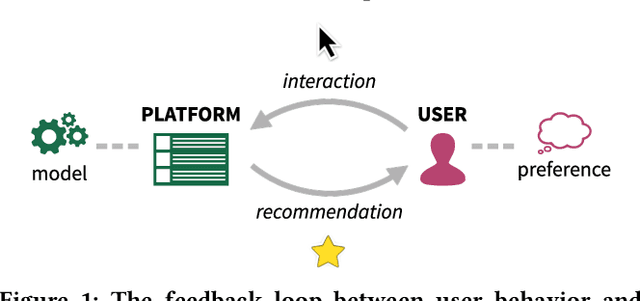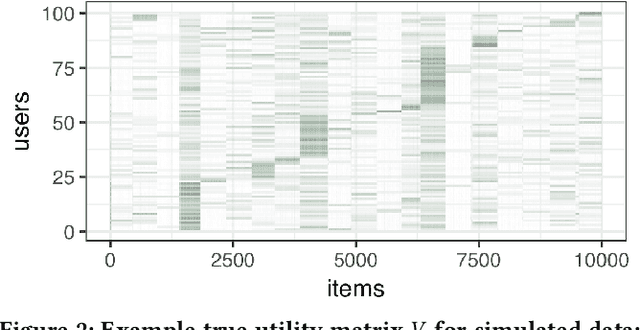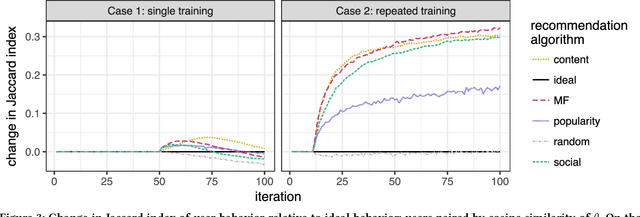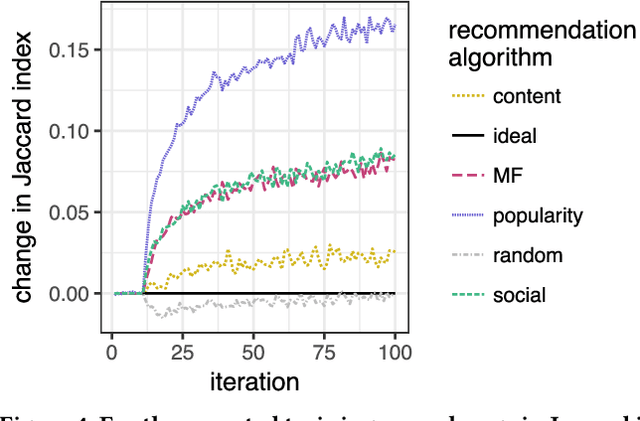How Algorithmic Confounding in Recommendation Systems Increases Homogeneity and Decreases Utility
Paper and Code
Oct 30, 2017



Recommendation systems occupy an expanding role in everyday decision making, from choice of movies and household goods to consequential medical and legal decisions. The data used to train and test these systems is algorithmically confounded in that it is the result of a feedback loop between human choices and an existing algorithmic recommendation system. Using simulations, we demonstrate that algorithmic confounding can disadvantage algorithms in training, bias held-out evaluation, and amplify homogenization of user behavior without gains in utility.
 Add to Chrome
Add to Chrome Add to Firefox
Add to Firefox Add to Edge
Add to Edge